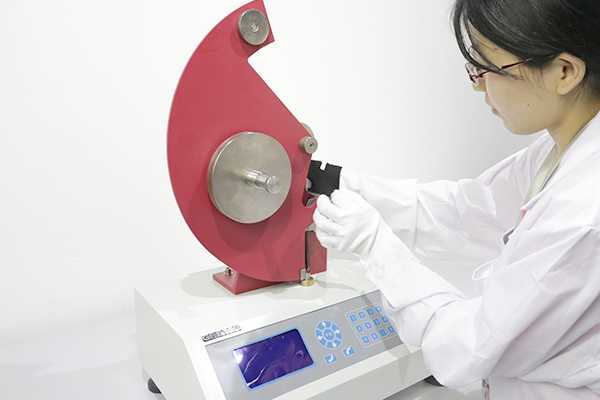-
From Textiles to Plastics: The Importance of Tearing Tests
Edited by:Read:Tearing tests are an important aspect of quality control in the manufacturing of various products, ranging from textiles to plastics. These tests are designed to measure the resistance of a material to tearing under controlled conditions.
In the textile industry, tearing tests are used to evaluate the strength and durability of fabrics. The test involves cutting a small slit in the fabric and then applying a controlled force to tear the fabric along the cut. The force required to tear the fabric is measured, and this information is used to determine the fabric's tear strength.

Tearing tests are particularly important in the production of protective clothing, such as workwear and safety gear. These garments must be able to withstand tearing and puncturing from sharp objects or abrasive surfaces to provide adequate protection to the wearer.
In the plastics industry, tearing tests are used to evaluate the strength and durability of plastic films and sheets. The test involves cutting a small slit in the plastic and then applying a controlled force to tear the plastic along the cut. The force required to tear the plastic is measured, and this information is used to determine the plastic's tear strength.
Tearing tests are essential in the manufacturing of plastic products that require a high level of tear resistance, such as packaging films and industrial liners. These products must be able to withstand tearing and puncturing during transport and handling to ensure that the contents remain intact and protected.
In conclusion, tearing tests play a crucial role in quality control in the manufacturing of various products, from textiles to plastics. These tests help ensure that the products produced are strong, durable, and meet the required specifications for their intended use.
- 2024-04-19Paper ring compression strength tester standards
- 2024-04-19Cupping tester standards
- 2024-04-19Rubber and plastic tensile tester standards
- 2024-04-19Taber 1750 wear-resistant tester standards
- 2024-04-19Stone Chip Resistance Gravelometer standards
- 2024-04-18Diaper absorption speed tester standards
- 2024-04-18Diaper leakage tester technical indicators
- 2024-04-18Paint film impact resistance tester standards
- 2024-04-18Low temperature brittleness tester principle
- 2024-04-18Battery separator permeability tester technical indicators



